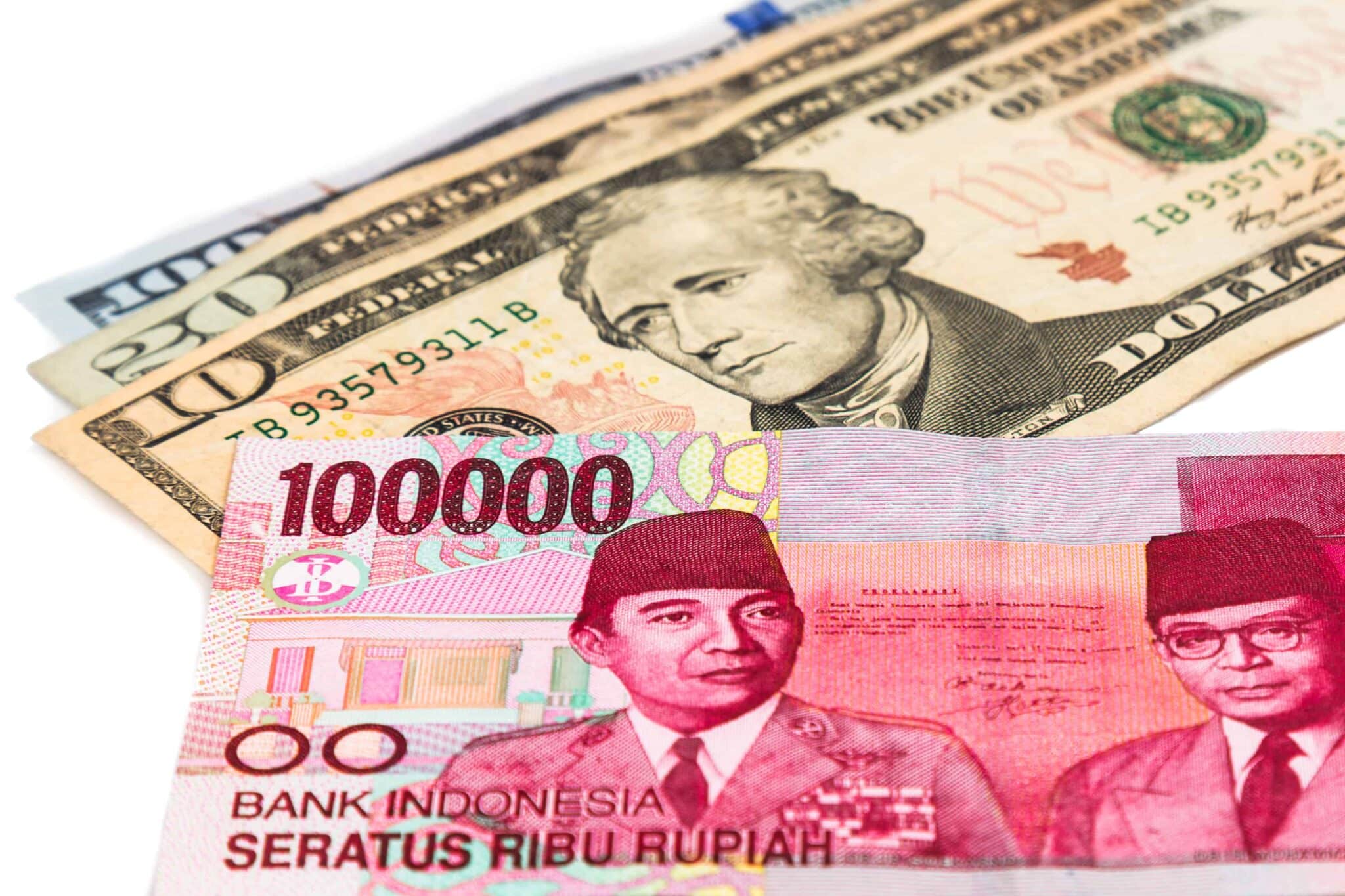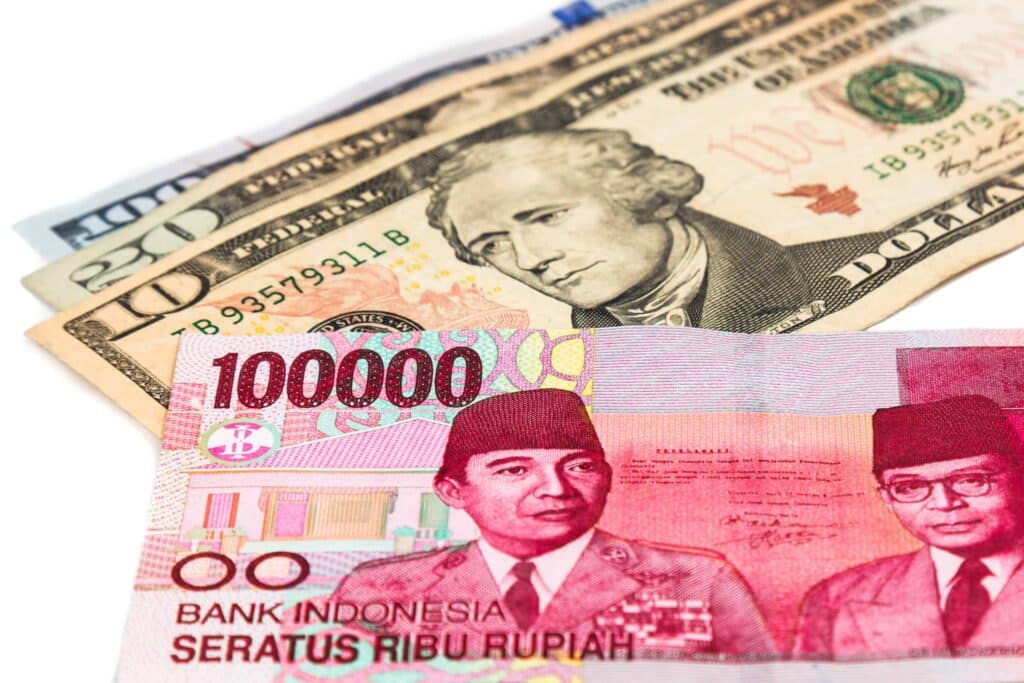
Located between the Indian and Pacific Oceans in Southeast Asia, the Republic of Indonesia is the largest island country in the world, consisting of 17,000 islands. Its economy has been impressive over the past two decades. By 2050, Price Waterhouse (PWC) predicts that Indonesia will be the fourth-largest economy by purchase power parity in the world, behind China, India, and the United States. With abundant natural resources, a youthful demographic, and a population of 274 million, the nation has been a major beneficiary of globalization, and its burgeoning middle class is keen on investing and trading activities. If you are interested in learning how to start forex trading in Indonesia, this article will get you started.
It is essential to realize that trading forex is high risk. Preparation is key to succeeding in this exciting trading genre, and this website is a great place to begin your education about this form of trading. The benefits of forex trading detailed below are many, and the step-by-step guide that follows will help you start your journey.
Why start forex trading in Indonesia?
Forex trading in Indonesia, whether in the traditional manner or with Contracts-for-Difference (CFDs), is legal. The Indonesian Rupiah (IDR) is the national currency, and it floats freely in international currency markets. With GDP in excess of $1 trillion and growing, output in 2021 was higher than were pre-Covid levels. As the local health situation has improved, exports of the country’s vast reserve of raw materials have increased, and tourism has picked up, as well. As PWC has predicted, the Indonesian economy will grow considerably in the years to come.
Forex trading is growing in popularity in Indonesia, but brokers face a challenge on religious grounds. Current data reflect that this republic is the most populous Muslim-majority country in the world, with nearly 87% of the population of the Islamic faith. Sharia Law prohibits the imposition of usury or the charging of interest for any purpose. Due to the size and growth potential of the Indonesian economy and the dictates of the local regulator, a multitude of forex brokers, both foreign and domestic, offer both traditional and special Sharia accounts to appeal to potential forex traders. These special accounts adhere to the principles of Sharia Law.
Several of these brokers are global, and while the local Indonesian regulatory watchdog may not regulate them directly, each complies with a Tier-One regulatory establishment in another major jurisdiction. Always be wary of offshore brokers that are not regulated, located in unfamiliar locations, or offer deals too good to be true.
As for choosing the right broker for your trading style, the staff at ForexTraders has already performed much of the work for you. We have reviewed the many forex brokers offering service to residents of Indonesia and refined that list down to a manageable level. Each of the brokers provided in the following list is regulated, safe, and has a performance track record that meets the highest standards in the forex trading industry.
| Broker | Features | Regulator | Platforms | Next Step | |
|---|---|---|---|---|---|
 Between 74-89% of CFD traders lose
Founded: 2010 Between 74-89% of CFD traders lose
Founded: 2010Between 74-89 % of retail investor accounts lose money when trading CFDs |
|
ASIC, FCA | MetaTrader 4, MetaTrader 5, cTrader | ||
 Your capital is at risk
Founded: 2006 Your capital is at risk
Founded: 2006Europe* CFDs ar... |
|
ASIC, FSA, FSB, MiFID | MetaTrader4, Sirix, AvaOptions, AvaTrader, Mirror Trader | ||
 Your capital is at risk
Founded: 2014 Your capital is at risk
Founded: 2014 |
|
FSPR | MT4 | ||
 Your capital is at risk
Founded: 2009, 2015, 2017 Your capital is at risk
Founded: 2009, 2015, 2017 |
|
ASIC, CySEC, IFSC | MT4 Terminal, MT4 for Mac, Web Trader, iPhone/iPad Trader, Droid Trader, Mobile Trader, MT5 | ||
What are good reasons for trading forex in Indonesia? The benefits are several. Here are just a few:
- Market Size: The Bank for International Settlements surveys the forex industry every three years. Its last survey was in 2019 when it determined that daily turnover in this industry was $6.6 trillion. With a market this large, no one entity can manipulate prices, but there are optimum times to trade when volumes are best.
- Market Liquidity: Large volumes equate to high liquidity, tight Bid/Ask spreads, and easy entries and exits. These characteristics, however, vary by time and by currency pair. It is best to learn when the market is at its best in your local time zone.
- Market Hours: The forex market opens early on Monday in New Zealand and does not close until late afternoon in New York on Friday. This “24X7” nature of the market speaks to convenience for all traders, no matter the time or place of market access.
- Product Offerings: There is an abundance of major currency pairs to trade and many minor pairs, which also offer acceptable liquidity. You may trade traditionally, with CFDs, options, copy trading of an expert, or participate in a managed fund offering. There are many ways to win in this market.
- Leverage: Margin is free in forex trading, but major pairs are limited to “50:1” by regulators in most major developed countries. Non-regulated brokers may offer more leverage but beware of the risks involved. Leverage can expand profits, but it can also magnify losses.
- Opportunities for Profit: The beauty of the forex market is that if you miss one opportunity, there is always another just around the corner. The market can be very fickle and volatile sometimes, but there will always be chances to go short or long on your favourite currency pair.
Although the Covid-19 pandemic brought about a recession in 2020 in the Indonesian economy, the first in 22 years, forex trading witnessed a surge in Indonesia and around the world. That was because many individuals were working from home and looking for more ways to earn income. According to the World Bank, however, the Indonesian economy did rebound in 2021, expanding at a rate of 3.7%. Indications are that this growth will continue in 2022 at a 5.2% clip, a good sign for Indonesians and for those residents that have chosen to trade forex pairs.
Who regulates Forex Trading in Indonesia?
The first decade of the millennium witnessed the introduction of retail forex trading in Indonesia, but regulatory oversight was far too lenient. Fraud ensued, and Indonesian traders accrued severe losses at the hands of unscrupulous brokers and scam artists. In 2011, the laws were changed, and the Financial Services Authority of Indonesia (locally the Otoritas Jasa Keuangan or OJK) was formed.
The OJK was tasked with regulating local financial institutions, overseeing capital markets, and protecting consumers of financial services. It replaced the previous regulator, the BAPPEBTI, although this group continues to regulate derivative markets in the commodities and futures sector. The new regulator came down hard on bad actors in the forex industry and restored confidence in the forex market. As a result, retail forex trading has grown rapidly in the country, and expectations are for it to continue to do so in the future.
Related Articles
A step-by-step guide how to start trading forex in Indonesia
Newcomers to forex trading are advised to take the time to become well educated in every aspect of this activity before placing capital at risk. The best forex brokers provide free demo systems where you may practice trading, learn the ins and outs of the market, develop a cohesive trading strategy, and decide which trading platforms work best for you.
After this preparation phase, the steps to get start trading Forex in Indonesia are five in number:
- Choose a Broker: Any of the brokers listed in the above table would be an excellent financial partner for you. Each offers a demo system, is secure and safe, and complies with Tier-One regulatory oversight. Review each broker listed and select the one that is the most user-friendly for you.
- Open & Fund an Account: Broker websites make it easy to open an account with “Start” buttons located on most web pages. Be prepared to submit personal identity information. This requirement is dictated by international law. All legitimate forex brokers must comply. Account approval can come quickly unless another day or two is required for verification. Funding options will be listed. Check with your bank to determine the best method for your situation.
- Make Your First Trade: Do not trade until you have practised your step-by-step trading strategy, which is a disciplined way to prevent your emotions from interfering with your trading; a surefire way to lose in this volatile market. We can help you develop a trading regimen as simple as using moving average crossovers or something more complex. Technical indicators are very important in strategy development.
- Manage Your Risk: The forex market is known for its volatility and ability to whipsaw back and forth. There are proven risk management techniques for guarding against these variable market conditions. Practice these techniques on your demo system, too. These principles will show how large to make a position, protect your downside, and take your profits safely.
- Enjoy Your Profits: Yes, do enjoy your winning trades, but to do so, you must be able to accept losing trades. There is a psychology to forex trading. The easiest part is opening a position in the market. The difficulty comes when you must decide when to close the position for, hopefully, a gain, but it could be a loss. Practice trading can help you learn to let your profits run while cutting your losses early.
Concluding Remarks
Forex trading in Indonesia is a legal activity and a growing one. The local economy has recovered from a Covid-induced recession, and all signs point to continued economic growth in the future. These conditions are ripe for the retail forex trading industry, and local and foreign brokers are eager to support your needs. Selecting a safe and secure business partner, your forex broker, is an important decision. The list above is an excellent place to start, and we can help you learn everything you need to know before putting your capital at risk.
The benefits of forex trading are several, including size, liquidity, convenient access, and numerous currency pairs to research and trade. Opportunities abound. The high-risk nature of forex trading, however, requires that you invest ample time upfront educating yourself, as well as practising and perfecting your trading strategy. The major cause of failure among beginners is a lack of time invested in this preparation phase. Take your time, and enjoy the process.
Continue Learning
- Ultimate Guides to Forex Trading by Country
- Ultimate Guide to Forex Trading in Japan
- Ultimate Guide to Forex Trading in Malaysia
- EURJPY Forecast and Live Chart
- GBPJPY Forecast and Live Chart
Forextraders' Broker of the Month
BlackBull Markets is a reliable and well-respected trading platform that provides its customers with high-quality access to a wide range of asset groups. The broker is headquartered in New Zealand which explains why it has flown under the radar for a few years but it is a great broker that is now building a global following. The BlackBull Markets site is intuitive and easy to use, making it an ideal choice for beginners.

